Australian sports brain bank manager Alan Pearce says AFL players must take a mandatory week off after concussion
The potential answer to football’s concussion issue was forced upon the league last season. Now it is time for the game to make the change permanent.
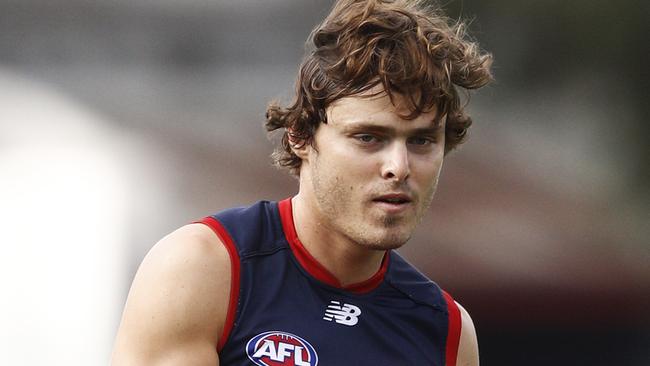
Melbourne
Don't miss out on the headlines from Melbourne. Followed categories will be added to My News.
Football’s most encouraging recent development with concussion management of players was forced upon it by COVID as much as policy change.
The league’s mandate early this year that players needed to pass a concussion test five days before a game rapidly intersected with a condensed player schedule.
Suddenly players concussed in any given game were immediately ruled out for the following fixture because a jam-packed schedule meant the contest was often only four or five days away.
And incredibly, the sky didn’t fall in.
Coaches didn’t rebel against the rule or try to pressure their medicos.
Players accepted it without fail.
And as a result players had more time for their rattled brains to heal before they took the field again.
Kayo is your ticket to the best sport streaming Live & On-Demand. New to Kayo? Get your 14-day free trial & start streaming instantly >
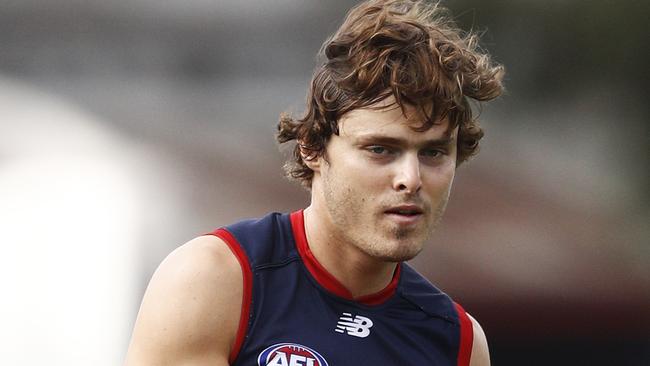
As the league reverts to its normal 22-game fixture in 2021 the common-sense solution is to broaden the policy so under a mandatory ruling a concussed player doesn’t play the following week.
Without exception.
The worst possible result of that kind of hard-and-fast ruling is that a player might at some stage miss a final when they believe they are ready to play.
The best possible result is that it will save a player’s life in the long term.
In the wake of Danny Frawley’s CTE diagnosis after repeated concussions, there is no better time to make the policy change.
The latest reminder of the savage toll of concussion was Kade Kolodjashnij retiring after speaking of his “dark moments”, depression and anxiety after repeated concussions.
As former AFL concussion researcher and Australian sports brain bank manager Alan Pearce said, why is it only if a player has had repeated concussions like Patrick McCartin and Kolodjashnij do we give their brains time to recover?
When West Coast’s Josh Kennedy was concussed in an accidental collision with Noah Balta’s knee in Round 14, he actually came back onto the ground then nearly collapsed with delayed concussion.
He said the next week the decision to take his return out of his hands given the lack of time for him to pass a concussion test took out the guesswork.
“Tonight, I’m not allowed to play because of the six, seven-day rule with concussion,” he said of that concussion test trigger five days before a game.
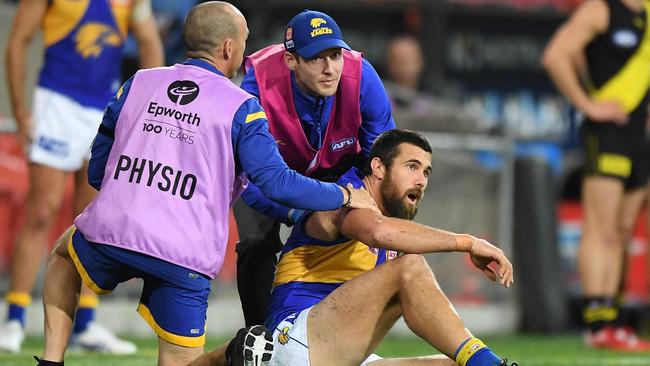
“It‘s put in place so you do have time to heal and get your brain settled and right before you do go back into a contact situation.
“The rules have been changed to try to protect the head. Sometimes people get frustrated with it.
“But the AFL have put them in place to handle things like this, because we don‘t want players coming out post career and having head trauma or things going on like Danny Frawley did.”
Pearce has long called for a mandatory week off after concussion, believing ideally the league would force players to rest for a fortnight before returning.
“What we are seeing from world-wide research is it takes 28-30 days for a full recovery,” he said on Thursday.
“That might not be realistic in a professional sporting sense but at least having half of that (out of sport) is better than playing the following week,” he said.
“Missing two games is better than not missing any until we have better detection methods to know when a player has recovered.
“Symptom resolution isn’t a good indicator of brain recovery. We have seen nearly two dozen players retire prematurely with concussion and Kade is 25 so we can say that’s retiring prematurely. When he says he feels like his brain is wired differently after concussion he’s right because it’s a brain injury.
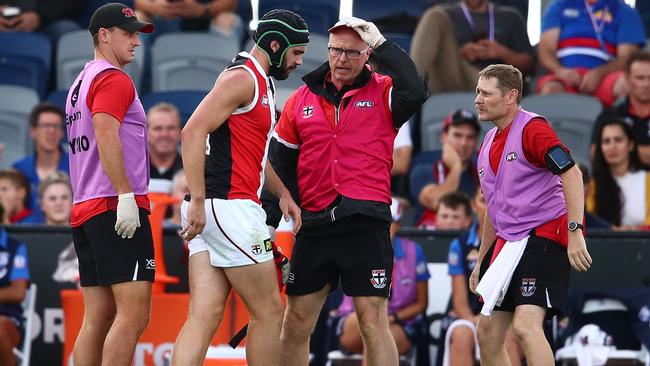
“Why do you have to wait to have 3-4 concussions to say we will rest you for a month? Why does it have to get to the point where the brain has been injured that many times that we will look after you now?”
Pearce says clubs considering recruiting McCartin have a significant duty of care to him, equating it to giving a pack of cigarettes to a lung cancer patient given one more concussion might cause significant harm.
But amid all the unanswered questions about the effect of concussion, a mandatory week off is surely the next step in saving player welfare.
FOOTY KNOCKS ‘CHANGED HOW MY BRAIN IS WIRED’
Rebecca Williams
Kade Kolodjashnij has revealed he struggled to get out of bed, do basic things like walk the dog and experienced “dark moments” at the height of his battle with concussion.
The Melbourne midfielder has detailed the extent of his struggle with concussion symptoms after making the decision to call time on his AFL career at the age of just 25.
It was a call Kolodjashnij described as a “tough pill to swallow”.
But it was one he knew he had to make for the sake of his future health and wellbeing.
Kolodjashnij managed just two senior games in the past two seasons at Melbourne after he was traded to the Demons from the Gold Coast at the end of 2018.
During the worst of his concussion battle, Kolodjashnij kept a diary of his symptoms, which revealed the significant impact it had on his physical and mental health.
“I actually had a diary just so I could … reflect on what it was like at that time,” Kolodjashnij said.
“I had a lot of symptoms like headaches and some days I just struggled to sort of get out of bed.
“Even little things like walking the dog or going to the supermarket, I couldn’t do without getting that severe pressure in the head and headaches.
“There was the emotional toll it has as well. I found myself a bit down at times and that has never really been me, I have always been pretty optimistic and confident and I felt at times I was probably a bit agitated for no real reason.
“I had a few dark moments I guess you could say, potentially a bit of depression and anxiety that I had to overcome as well.
“I felt like it took a bit of a toll. I remember saying to the club doctor, ‘It feels like my brain is wired a bit differently to what it was prior to the knocks’.
“But I feel like I’m starting to recover from that now having had 12 months off from training and nearly getting back to somewhat normal.”
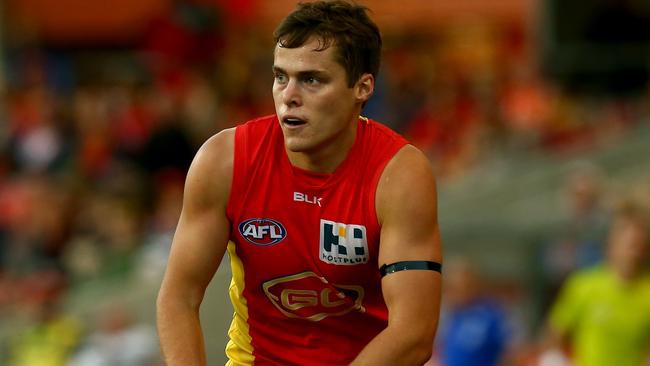
A former top-10 draft pick, taken by Gold Coast at No. 5 overall in the 2013 national draft, Kolodjashnij has not played a senior game since he was concussed in Round 3 last season.
Attempts since to mount a comeback were thwarted by further concussion episodes.
Firstly attempting a return via the VFL and another at the start of last pre-season.
Before he arrived at Melbourne, he had already suffered from head knocks at the Gold Coast – his first one in 2016 and another the following year.
The doctor’s advice after his VFL concussion was not optimistic, but even with the writing on the wall, Kolodjashnij was not ready to give up without “one last crack”.
“The club doctor told me, probably a year-and-a-half ago now, after that concussion in the VFL that he believes I should retire,” Kolodjashnij said.
“I was a bit naive at the time and wanted to try and get back for one last crack and it didn’t work out.
“The writing was on the wall ever since that knock 12 months ago that I knew my time might be up and that my body just couldn’t keep up with the demands of AFL.
“Doctors have said to me that it’s probably best I finish up for health reasons.
“At the end of the day my health and wellbeing is my number one priority and I think this was the best decision for life after footy as well and going into the future.”
After almost a year off AFL training, Kolodjashnij has experienced a stark improvement.
He joined his brother, Geelong’s Jake, for a run on Wednesday, but hasn’t really “pushed himself”.
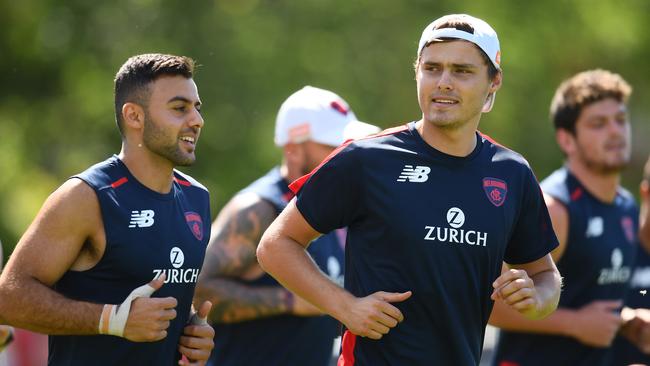
RELATED:
Graham ‘Polly’ Farmer first Aussie rules player diagnosed with CTE
AFL: Shaun Smith wins historic $1.4 million concussion damages payout
Neuroscientist reveals number of days AFL players should be sidelined after a concussion
Experts call for change as football world reacts to Graham ‘Polly’ Farmer CTE shock
“The last three or four months I have been back to sort of 100 per cent and have been able to train and I think mentally as well I’m back in a better place,” Kolodjashnij said.
“From the physical point of view I would say I would be able to do most things now. I haven’t really pushed myself to the absolute limit or done any contact for 12 months but just the little things now I can do which is good for my mental and physical health as well.
“At the time it was pretty hard going into the club most days knowing you don’t really feel a part of it being in rehab with all the pressures with AFL. I think to be able to isolate myself away from that has helped me recover as well and get back into a better head space.”
Kolodjashnij said concussion in the AFL would be an issue as long as unknowns about its long-term effects for players remained.
“There are still a lot of unknowns with it which is a bit frustrating,” he said.
“You go and see the neurosurgeons and the doctors and they are not quite 100 per cent sure what the prolonged effects may be.
“You can’t really see on the MRI scan or anything like that, but the AFL has come a long way with protocols and I think from even when I started it improved drastically, which is good for the players in itself and at the end of the day your health is the most important thing.
“I don’t really think about that (the future impact), I like to live day-by-day.
“I try not to get caught up in that side of things. I think it’s just the best decision for me to finish up for that reason I guess.”
Kolodjashnij said his AFL journey had been a “rollercoaster”, but was grateful for the time he had in the game.
“When you come into the AFL system, you don’t think you are going to finish up at 25 and say you’re retired and that’s just the situation I found myself in,” he said.
“I’m just grateful for the seven years I had in the league. Not everyone can say they played AFL football.
“It’s been pretty difficult from a personal level, but I’ve had amazing support around me with my partner and my family and also the Melbourne Football Club.
“I think it’s good to see Jake still playing and I’ll be able to somewhat stay involved within the AFL system and follow his career now.”


